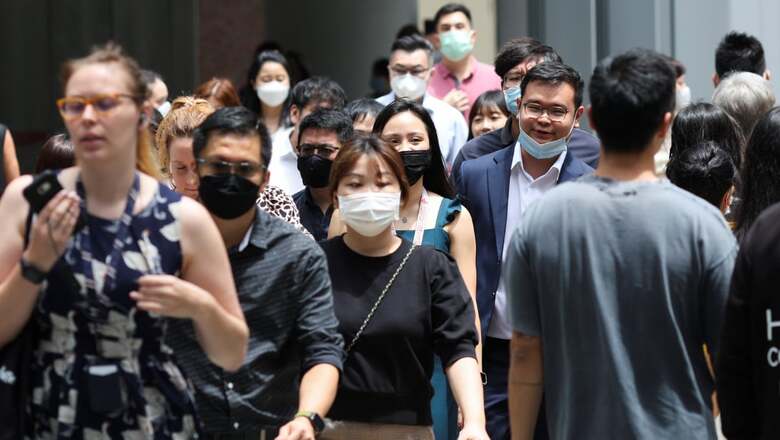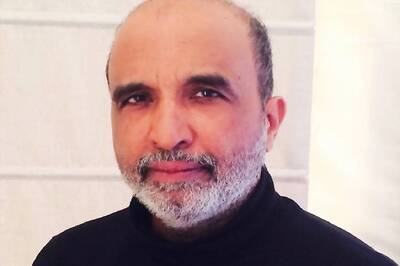
views
The number of Covid-19 infections in Singapore appear to have plateaued over the past week, but experts have urged people to be cautious and mask up in crowded enclosed places as a precaution. Last week, Singapore’s Ministry of Health (MOH) reported a 75 percent jump with 56,043 cases, compared with 32,035 cases in the previous week.
The seven-day moving average of the infection was 7,870 on December 12 and decreased slightly to 7,730 on December 17, The Straits Times newspaper reported. Experts have urged people to be socially responsible and mask up in crowded, enclosed places, even if they feel well, since the transmission of the virus occurs a day or two before symptoms appear.
“It’ll be a bell curve confounded by Christmas parties,” Professor Dale Fisher, a senior infectious diseases consultant at the National University Hospital (NUH), said. ”You don’t know if it’s peaked until after it’s peaked,” he was quoted as saying by the newspaper on Tuesday.
While the numbers remain high, experts say it is not a cause for concern, even though serious illness and deaths tend to lag infection figures. In the week of December 3, a total of 9,763 people were hospitalised, and 23 were admitted to intensive care units (ICU).
The health ministry is providing daily updates of the Covid-19 infection figures from December 19 ”to provide the latest information on the situation during this period of surge in cases”. Professor Paul Tambyah of the NUH, president of the International Society for Infectious Diseases, said people do not need to worry about rising COVID-19 infections.
Instead, they should ”just be sensible about taking precautions about their health, not go to work or school if they are unwell and seek medical attention instead,” Tambyah said. ”We should be concerned because a large number of infections will impact healthcare services and also result in higher numbers of serious illnesses and deaths,” the report quoted Professor Hsu Li Yang, an infectious diseases specialist at the National University of Singapore (NUS), as saying.
“Everyone including those at minimal risk of severe Covid-19 should do their part in slowing down the transmission of the virus,” Yang said. The MOH has said that public hospitals in the city-state are prepared to delay non-urgent surgery to keep beds free in case of a surge in cases and the demand for beds increases.
Most experts said that the most important number is not how many people are infected but how many need to be hospitalised or require intensive care. The MOH data indicates that people with minimum protection three mRNA or four traditional vaccinations whose last COVID-19 jab was more than a year ago face almost twice the risk of needing hospital care than someone with a booster within the past 12 months, the report said.
Prof. Fisher added that the 23 Covid-19 patients in ICUs are a far cry from the 150 or so at the height of the pandemic. He expects the current wave to continue to the end of 2023 before plateauing and dropping by early 2024. Last week, the MOH said it “strongly encourages” people to wear a face mask in crowded places even if they are not ill, especially indoors or when visiting vulnerable people.




















Comments
0 comment